EXPLORE THE JOURNEY
THE ORIGIN OF IT ALL - “EVERYDAY INDIA”
My dear friend Jonas and I had been sketching and brainstorming on exciting ideas for a while. Although we both had jobs, we spent our evenings and weekends relentlessly designing bags, pouches and wallets inspired by our love for local India. Jonas & I, shared an almost unbearable enthusiasm for the colours, textures, materials, objects and artefacts we discovered as we wandered through Delhi’s labyrinthine streets and markets.
“Joli” also means “pretty” in French.
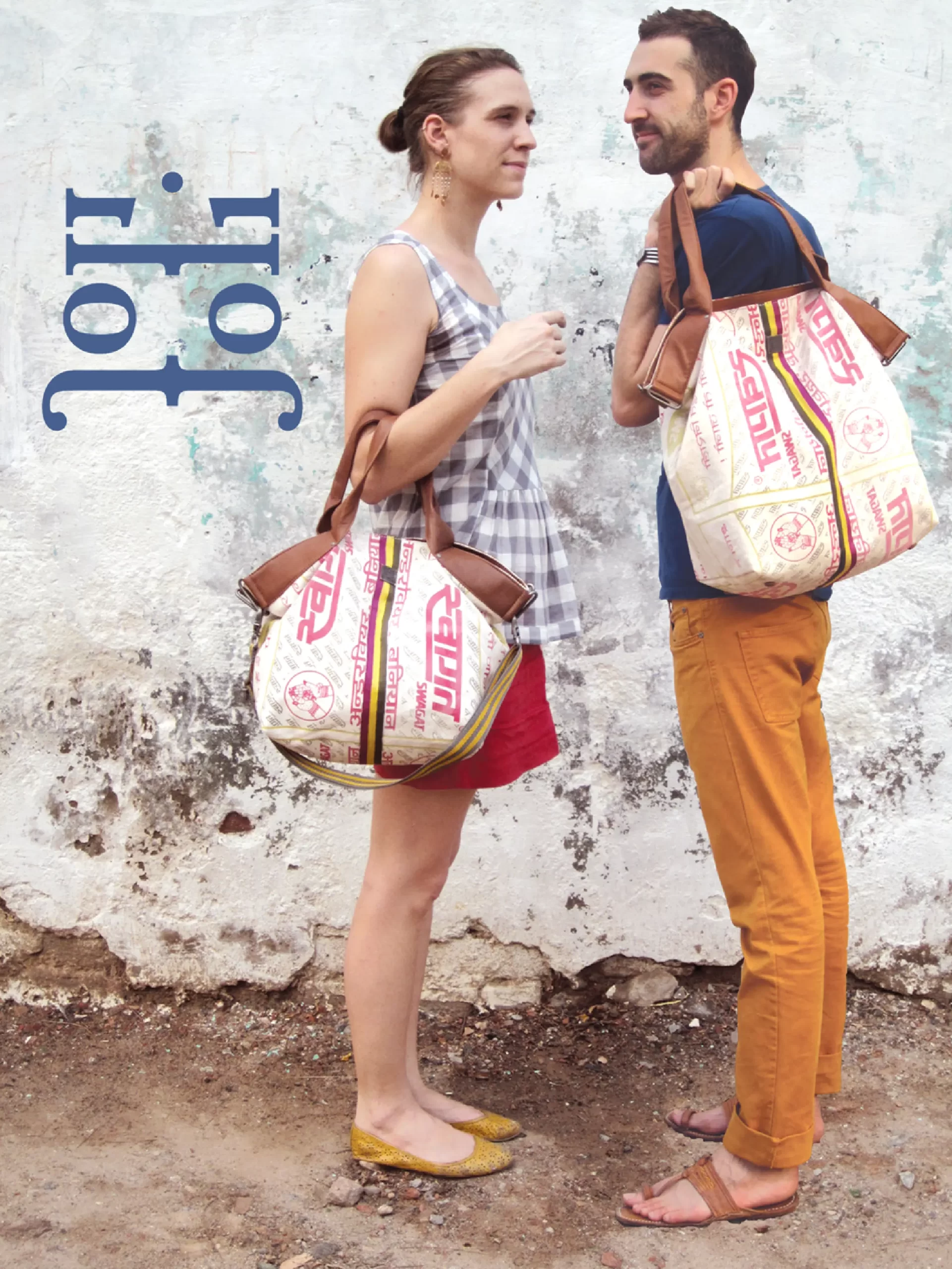
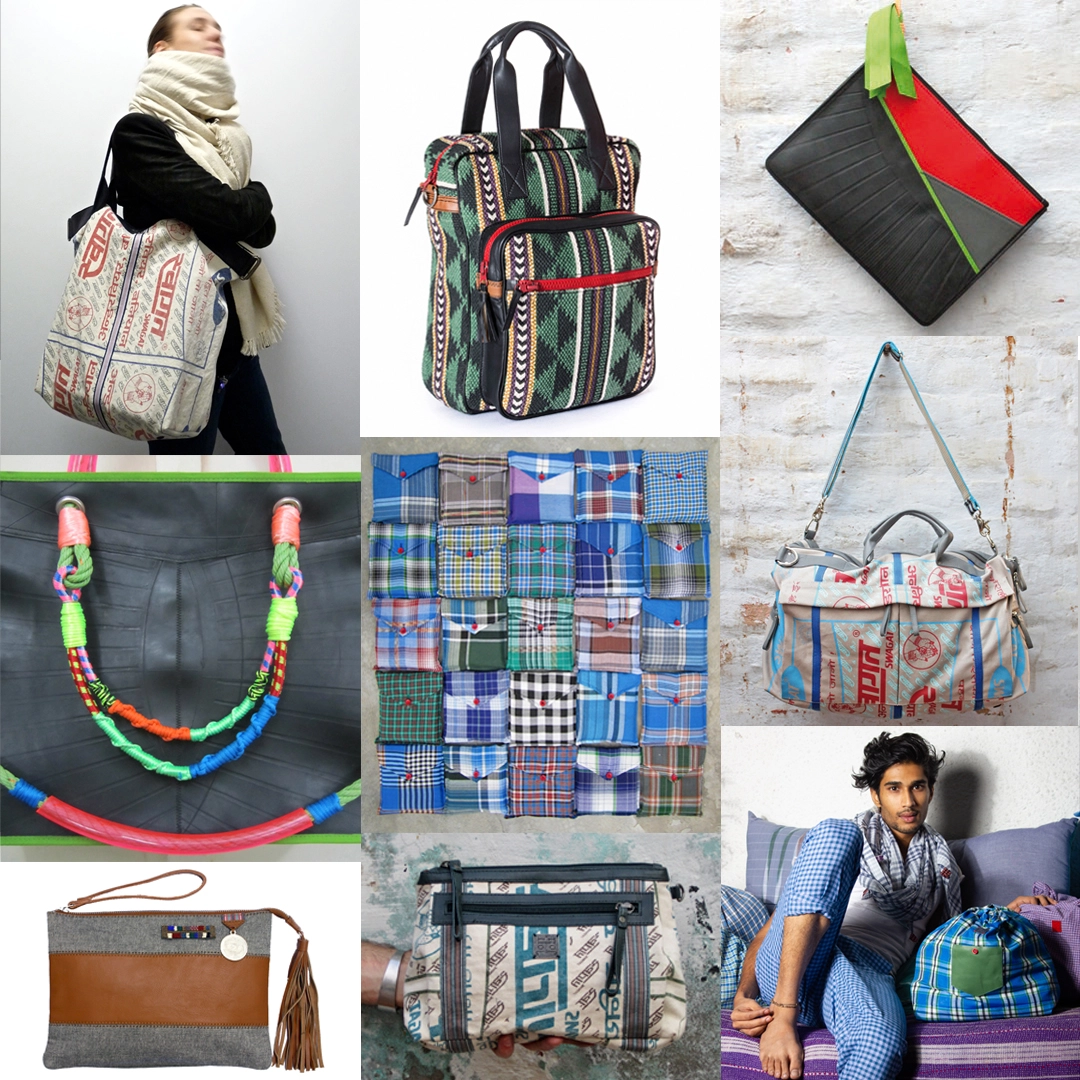
All our collections were a reflection of what we absorbed while living and experiencing Delhi the way we did!
- The GALLI print was inspired by a single market bag tote picked up in a bazaar in old Delhi. Then, we designed practical unisex styles.
- SURYA with the use of neon tapes on khaki & grey canvases, reflected on how light shines through the dirt, even in the darkest and dingiest places. The neon colours represent us “humans” — our inner diamond light, our strength, our infinite potential.
- BAZAAR was a first attempt to use upcycle stuff. We had a lot of fun creating eccentric styles made of old tires and all sorts of collected bright materials from old Delhi Street markets.
- YATRA PATTI was an ode to our beloved Delhi. This ever-bursting, developing city is in a constant process of “work in progress” – constructions, infrastructures, traffic jams & diversions, marking our lives here! It keeps you on your toes, forever rooted in the present.
- DARI CHOWK was an exploration of the traditional Indian dhurrie rugs. Made usually with cotton yarns and handwoven across India, we decided to print a modern geometrical design on the raw undyed yarns of “korra” Dhurries.
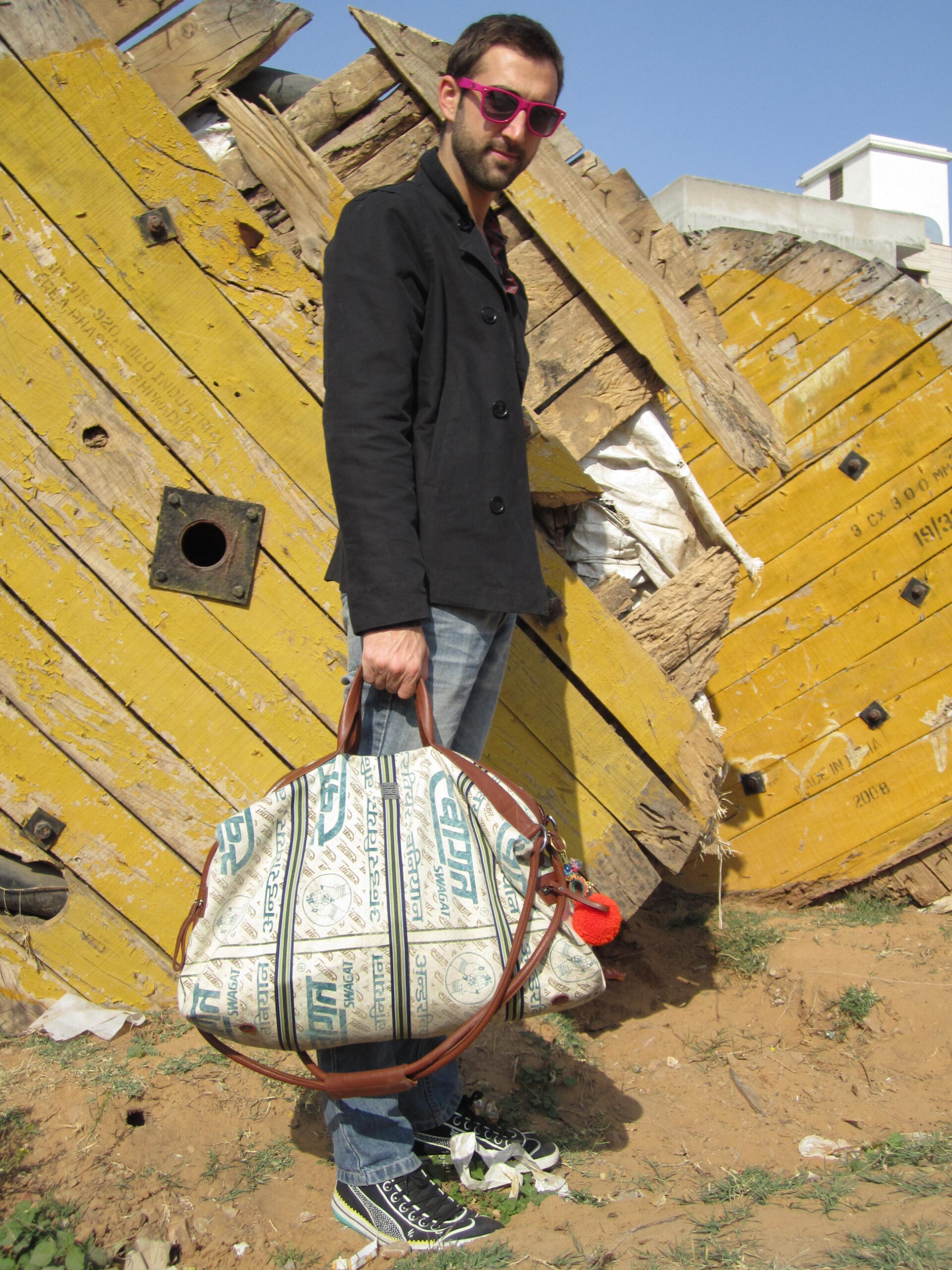
THE ETHICAL CALLING - “UPCYCLING”
In 2013, after a visit to Panipat, where we had our Dari Chowk dhurrie fabric woven and printed, we became aware of the extent to which India was a keen and powerful player in the upcycling ‘machine’.
While there, we dropped in to see fascinating warehouse units that were upcycling clothes by the tonne!
I was in awe!
Containers from the USA & the UK, filled with old clothes, were being sorted. Monochromatic mountains of clothes covered the ground, all sorted by colour, ready to be shredded into pulp and transformed into new recycled yarn.
I was struck – I fell in love. I realized how abundant our modern and industrialised world is, nauseatingly packed to the brim with everything we already need. I was humbled.
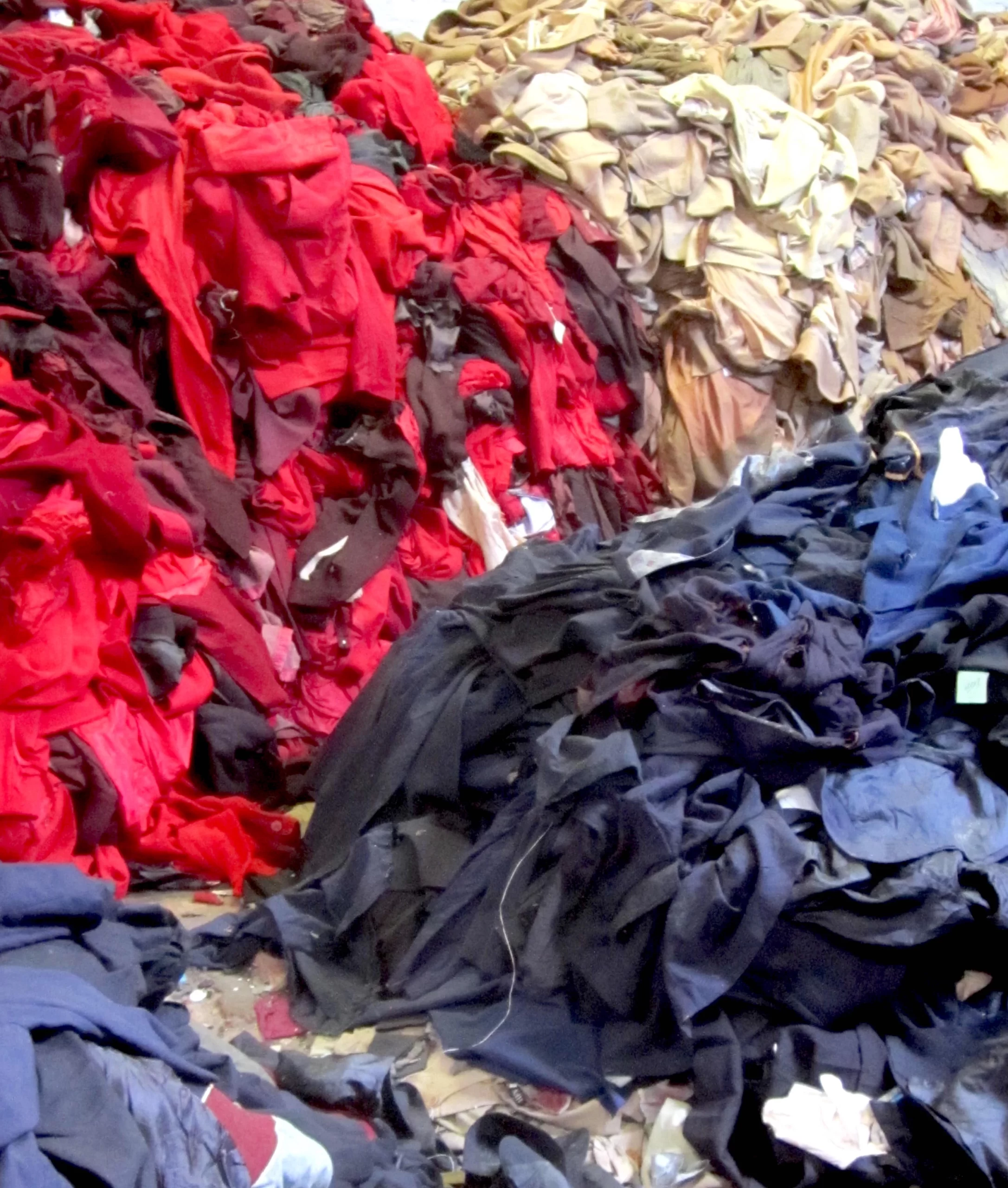
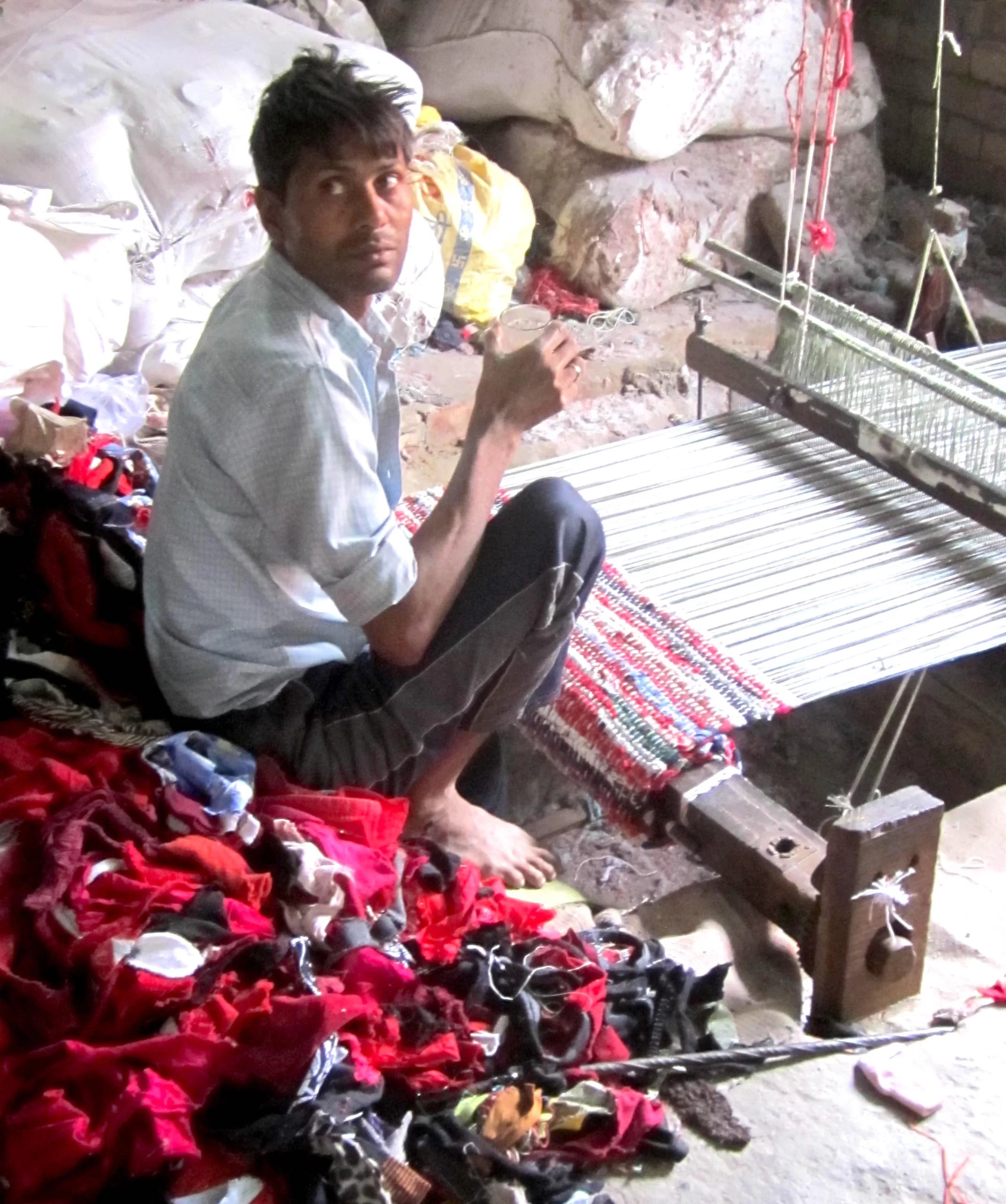
I want to be part of this global movement towards a sustainable future.
I decided to continue with our JOLI project.
THE JOURNEY CONTINUES - “CONNECTIONS”
My focus shifted to what I know and feel – colours & textures of life here – with a penchant to use what is already here to create the new, and to connect with the people I meet and work with.
What was truly infectious about living in India were the connections I made with the people on the streets & markets of Delhi, as well as during my travels in India. Even though my Hindi is pretty basic, connecting was simple, easy, and heart-warming – and that’s what got me hooked.
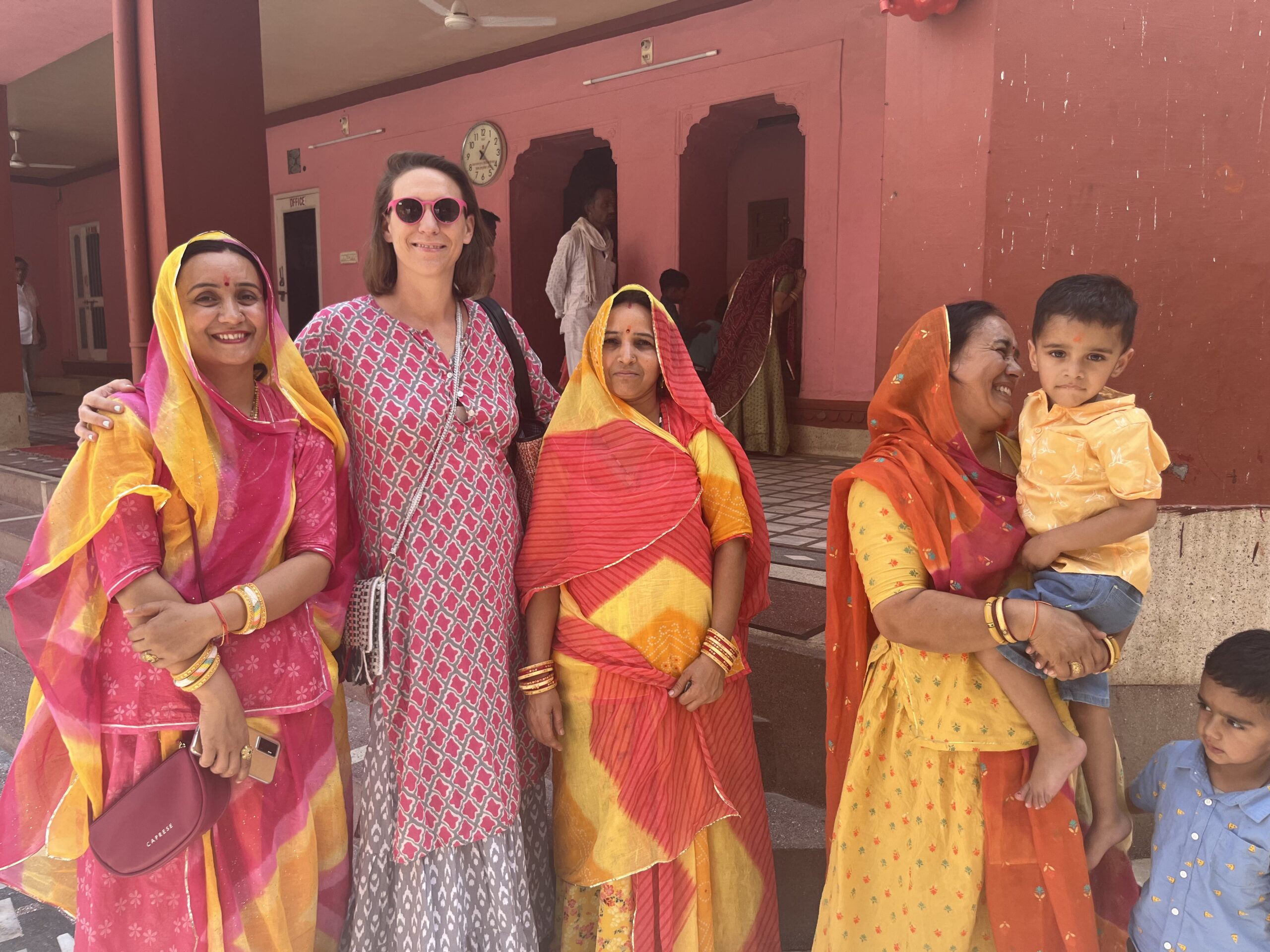
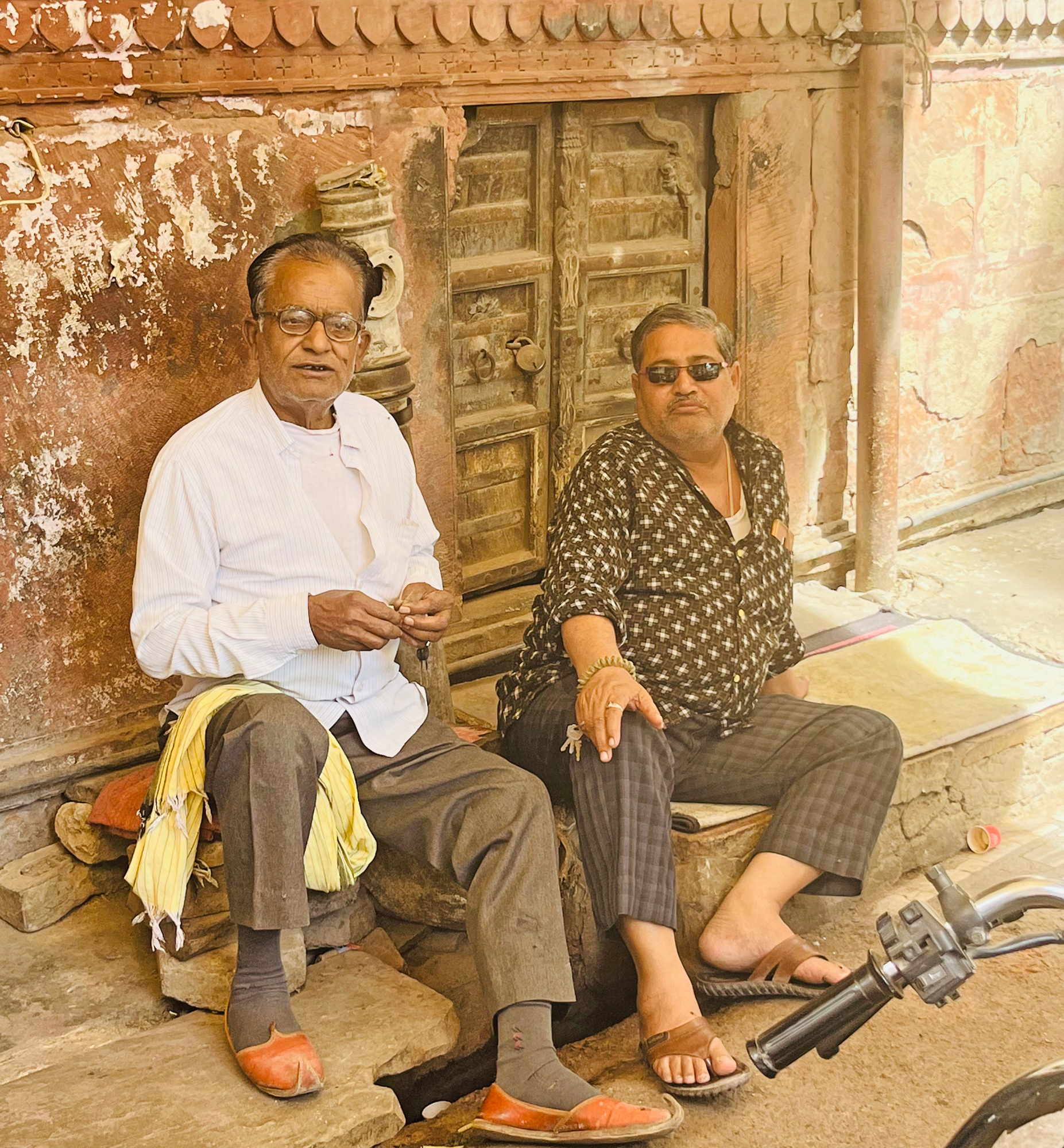
TODAY & WHERE ARE THE PRODUCTS MADE?
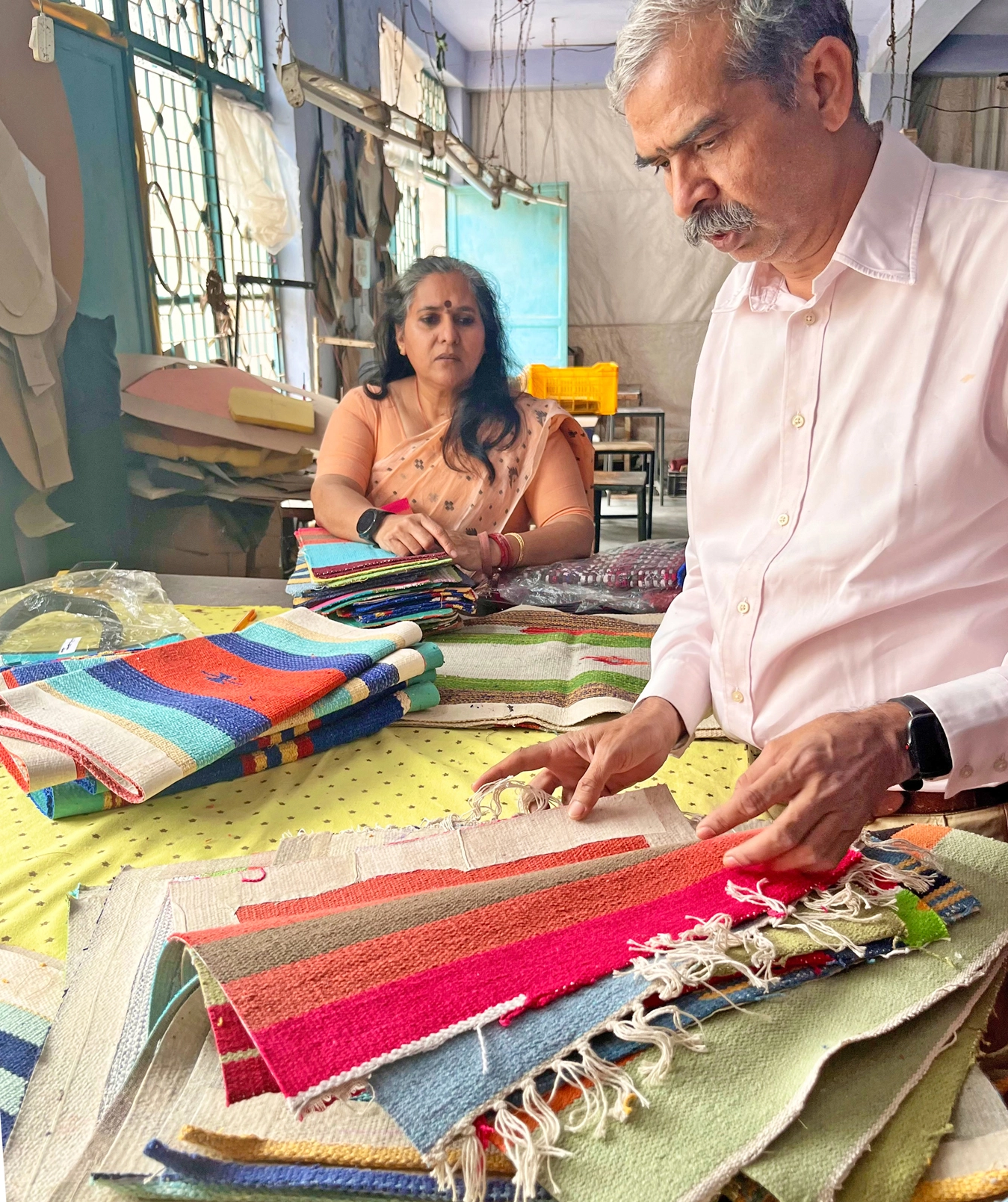
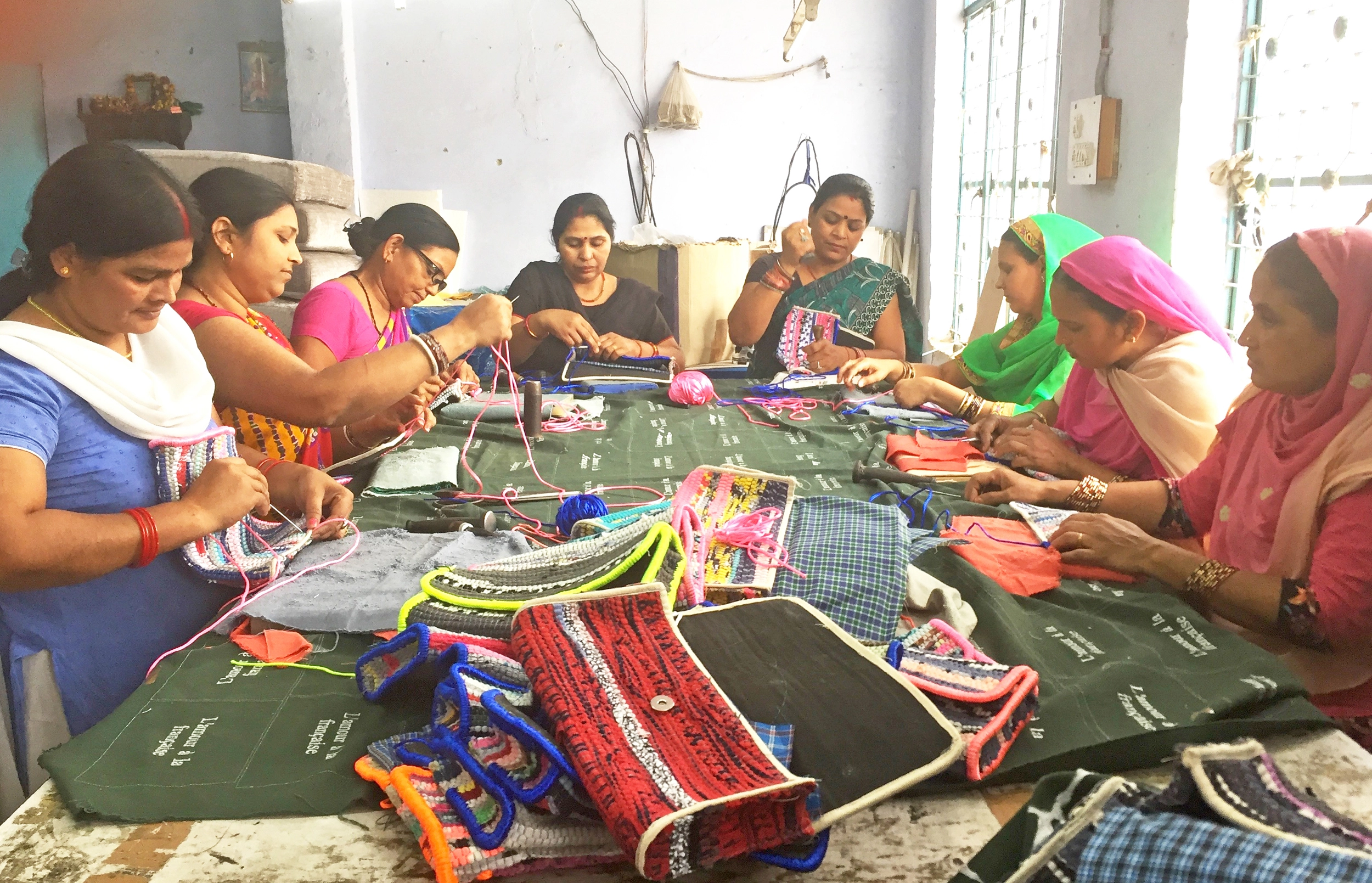
In South Delhi, Praveen leads a small team of skilled makers who create the Dhurri line, one bag at a time. He also stitches our limited-edition Chindi collection. Praveen has been producing for Indian and European brands for many years, and for the past few years, he has also pursued his passion of making furniture.
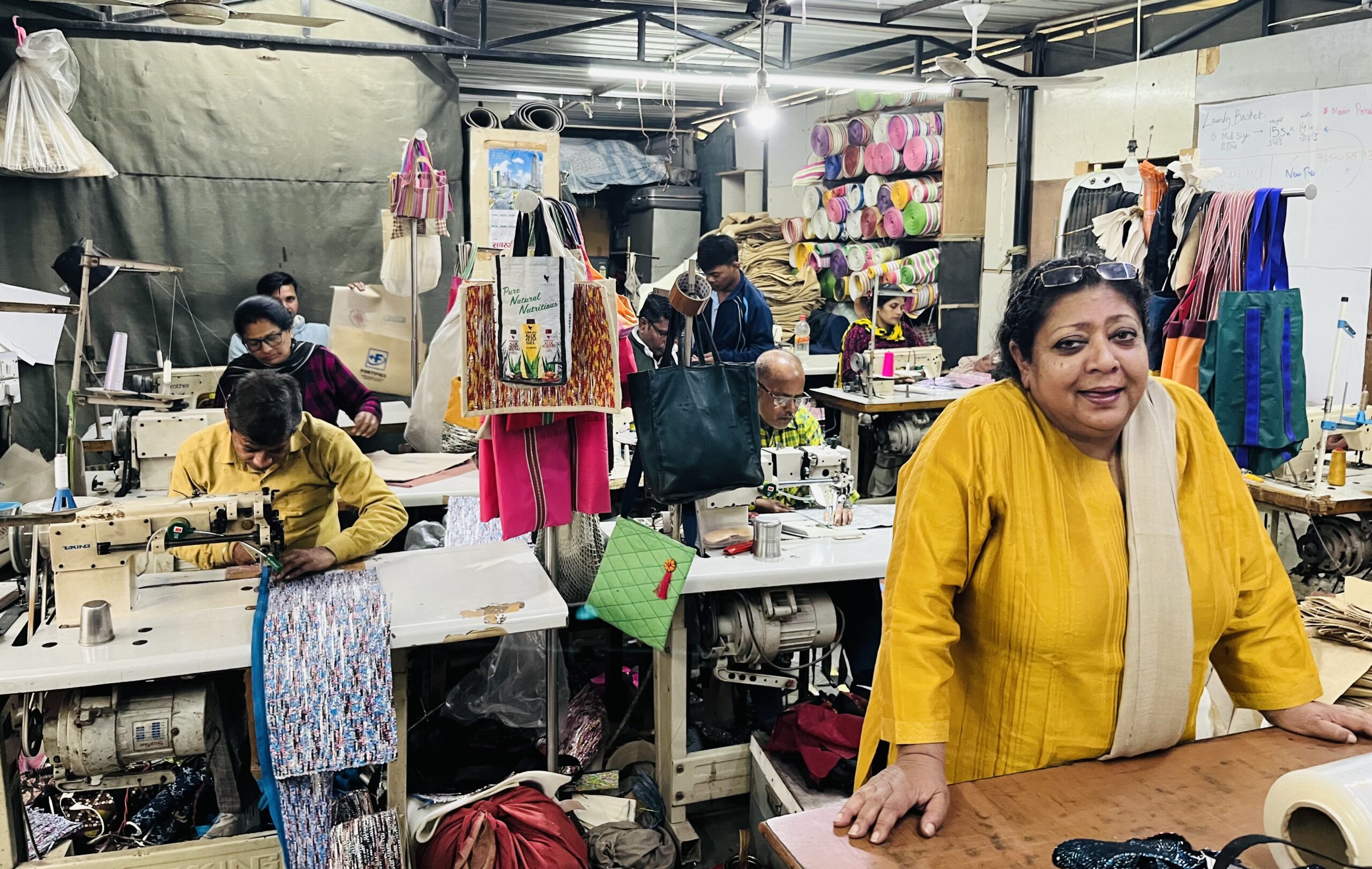
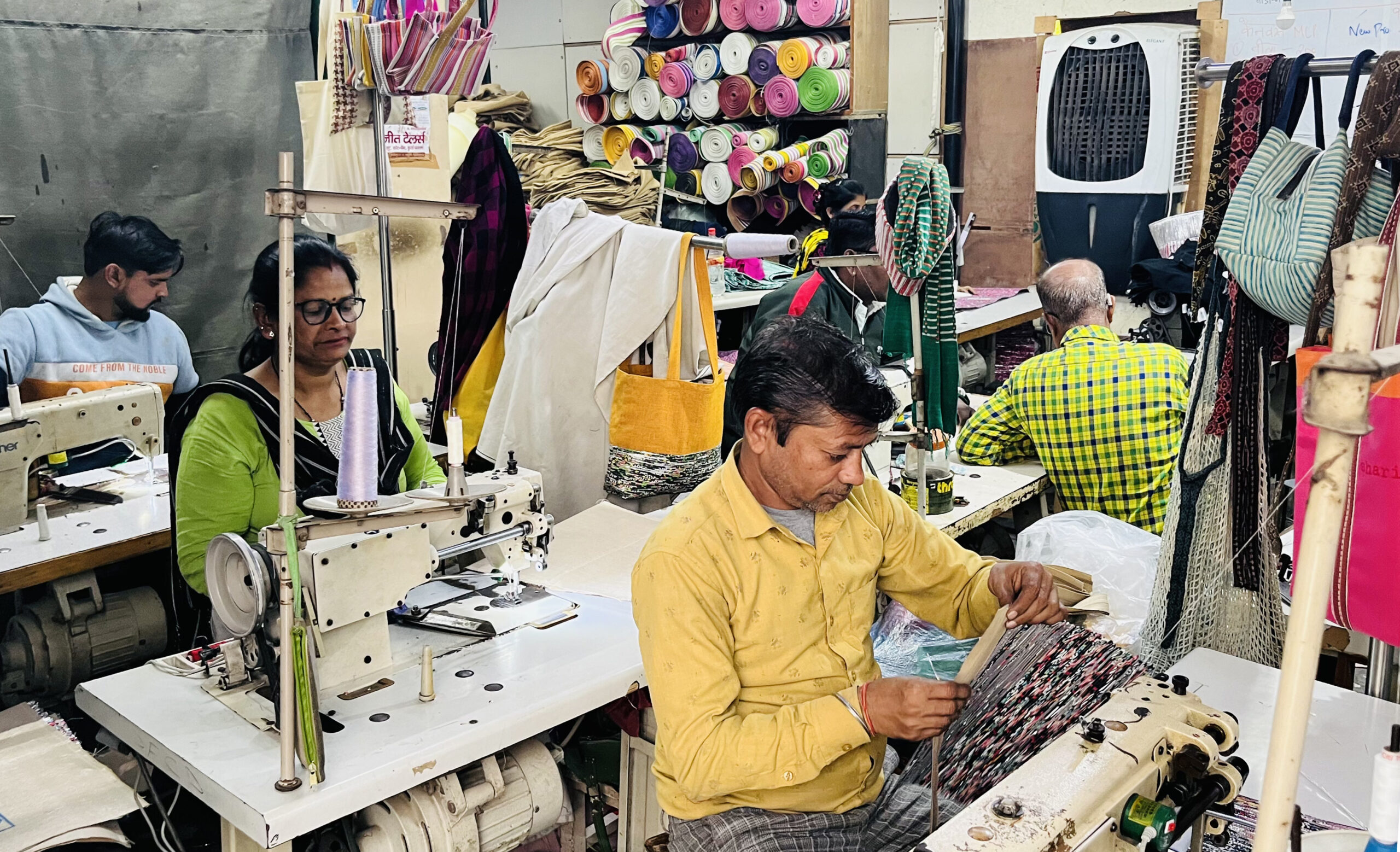
In North Delhi, Madhumita gracefully manages different social enterprises to which she has devoted her life. Since 2001, “Trash to Cash” is a skills development centre for adults and young adults with disabilities. Over the years, recycling flowers, plastics, fabrics, paper and other materials become the cornerstone of the employment program for these artists. In the workshops, many busy hands stay productive, earning a living through creative activities like modelling, pottery, paper-mâché and painting, while also incorporating recycled and up-cycled materials into their art and craft. The Metallic line is being produced there.
Prabhat’s Society for Child Development, created by Madhumita in 1992, is an NGO dedicated to improving the lives of children with mental and intellectual challenges.



